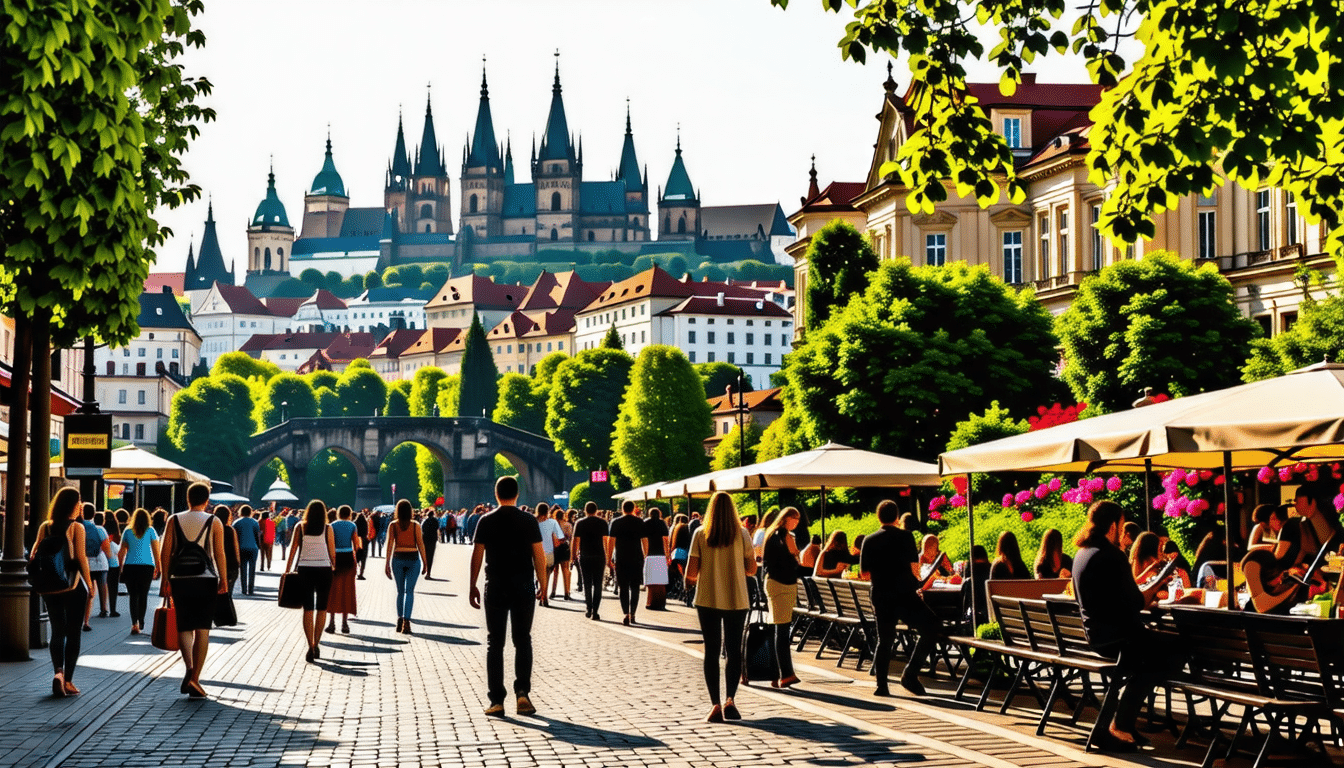|
IN BRIEF
|
The Czech capital, Prague, defies traditional tourism expectations by banning nighttime tours in bars, an effort to attract more selective visitors interested in discovering the city’s cultural richness. By emphasizing a more sober and enriching travel experience, Prague aspires to redefine its image and distance itself from the excesses of mass tourism.
À lire Discover the smallest river in France at the heart of one of Normandy’s gems
An Initiative for Informed Tourism #
The city council of Prague has made a bold decision by banning organized tours in the city’s bars. This measure, adopted on October 14, aims to rid itself of the appeal of party-goers in favor of more discerning tourists. According to Jiri Pospisil, a city councilor, Prague is seeking visitors who are “more cultured, richer” who wish to engage in cultural activities rather than get drunk during festive nights.
Response to Intrusive Tourism #
In response to the challenges of overtourism, where the volume of visitors affects the quality of life for residents, Prague is adopting a proactive approach. Nighttime tours, primarily favored by foreign clientele, particularly British, have been deemed disruptive to the local population. Surveys show that these events cause disturbances, prompting municipalities to act to preserve the charm of the city and the tranquility of its neighborhoods.
Cultural Horizons #
This focus on more refined tourism is not limited to a simple ban. Prague is indeed developing initiatives aimed at promoting its cultural richness. Numerous museums, galleries, and theaters, often discreet, await discovery by art and history enthusiasts. The city offers a range of activities from guided tours of historic monuments to contemporary theater performances, creating an atmosphere conducive to learning and cultural exchange.
An Ethical Choice for Visitors #
The message is also clear: Prague wants to attract tourists who are mindful of their environmental and social impact. By prioritizing experiences of sobriety rather than drunken nights, the municipality hopes to forge a new bond with its visitors, based on respect for local culture and residents. This strategy encourages tourists to participate in local activities, taste traditional dishes, and soak in the city’s heritage.
À lire the United States issues a travel warning for Pakistan following a drone attack in India
Support from Local Stakeholders #
Industry professionals, notably the local association of hotels and restaurants, view this initiative positively. According to Vaclav Starek, director of the association, although bars remain open to visitors, organized tours are no longer necessary. This allows for diversification of the offerings and enhances the experience for other tourists as well as for residents.
Prague and Its Beer Reputation #
Renowned for its production of beer, the Czech Republic is often associated with lively nights. According to statistics, a Czech consumes an average of 128 liters of beer per year. However, the city aspires to distance itself from this image by highlighting culture rather than drunkenness. With bars offering local beer at affordable prices, Prague aims to balance its appeal by providing evenings that are not solely centered around alcohol.
Conclusion: A New Tourist Identity #
Prague is reinventing itself to become a destination where culture and sobriety go hand in hand. Through this effort, the city hopes to attract quality tourism that will appreciate the authenticity of its heritage while respecting local life. This transformation opens new perspectives for both visitors and locals, making Prague much more than just a party city.


